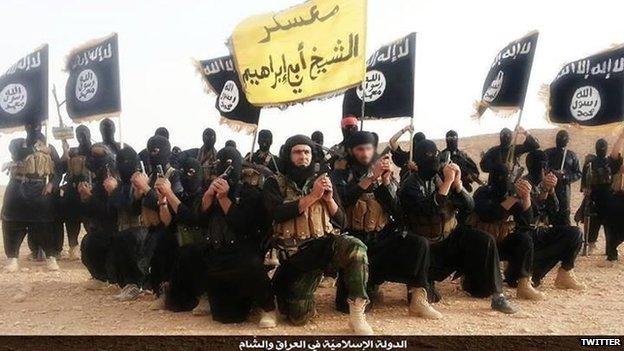
The thirteenth anniversary of September 11 was just recently observed last month, but instead of focusing all of our attention on those lost in the attacks, America feared another major threat from the new terror group: the Islamic State of Iraq and Syria (or ISIS). In fact, Al-Qaeda — our previous archetypal terrorist organization — denounced ISIS this past February because they were too extreme of an organization. Keep in mind that the group calling ISIS “too extreme,” is the same group that flew two commercial airliners into the Twin Towers and killed 3,000 innocent Americans. Moral of the story: ISIS should not be taken likely.
While President Barack Obama referred to ISIS as a “JV Team” in an interview with the New Yorker in late January, they have grown into something else entirely over the last nine months. Most recently, they have beheaded three Westerners (2 American, 1 British) and publicized the act on social media. They have crucified many Iraqi soldiers and citizens who failed to be loyal to the Caliphate. Although they have not committed a large-scale attack against Americans, they released a video claiming that attacks against America will be “coming soon.”
Obama may be somewhat right, for ISIS has not committed an attack on US soil or an attack against a US Embassy. Really, this group has only killed three journalists and many foreigners. Considering the small amount of American lives lost, this group may seem insignificant.
However, they have the potential to be far worse than Al Qaeda.
Unlike Al Qaeda, an organization that operated privately in small groups and was financed by a few terrorist kingpins, ISIS has used oil-money and social media to publicly strike fear in its opposition and to attract foreign radicals with passports — a combination that the world has not previously seen. With this steady income and public presence, ISIS is growing both within its borders and beyond.
President Obama proposed in his speech on September 10 that America would handle ISIS with a series of airstrikes, primarily in Syria, to eliminate the groups leaders and as many combatants as possible. He also proposed providing weapons to the moderate rebel forces in Syria to help them combat ISIS and Assad’s military forces.
Recently, these airstrikes hit ISIS targets as well as another terrorist group called the Khorasan Group. These airstrikes can be an effective part of fighting a group like ISIS, but they cannot be the only thing. American soldiers need to be deployed to Iraq and Syria to fight this very serious threat. This Islamic caliphate — one bent on killing or converting all non-muslims — must be dealt with swiftly and aggressively to prevent more innocent American lives from being lost.
Sending weapons to Syrian “moderates” is also no way to handle the situation. The recent Syrian Civil War proves that Syrians can not be trusted to appropriately use any weapons that America gives them. Considering the quagmire of Syria with three separate military forces all fighting for autonomy, most logical people would not send weapons to the faction least likely to win. These weapons ultimately will find their ways to ISIS or other terrorist organizations.
Failure to appropriately act in this situation can cause very serious problems for America and its allies. Without a military presence in Iraq and Syria, ISIS can go about its daily activities without any worry of being killed or captured by US forces. Allowing ISIS to move freely between Iraq and Syria to gain more territory. Taking action against ISIS in its fairly early stages means an easier victory over the group with less troop casualties and a safer America. The United States must intervene before more American’s suffer the same fate as James Foley and Steven Sotloff, the two American journalists who were beheaded by ISIS.













